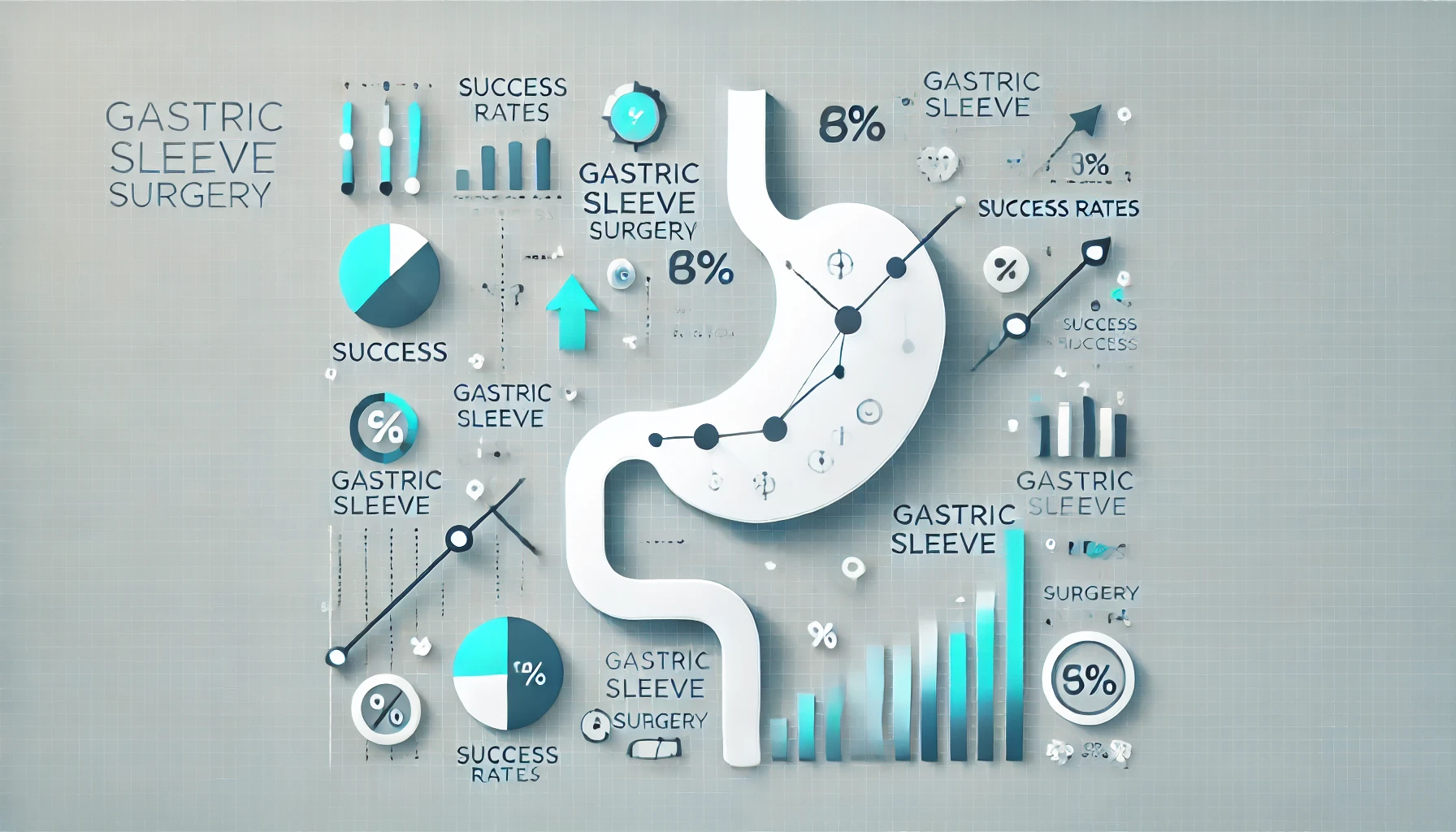Understanding the gastric sleeve success rates and associated statistics of gastric sleeve surgery is crucial for individuals considering this weight loss option Gastric sleeve surgery, also known as sleeve gastrectomy, is one of the most popular and effective bariatric procedures performed worldwide. This surgery involves removing a large portion of the stomach, leaving a banana-shaped “sleeve” that reduces food intake and helps patients lose significant amounts of weight. . This guide delves into the numbers behind gastric sleeve surgery success rates, providing a comprehensive overview of what patients can expect.
What Constitutes Success in Gastric Sleeve Surgery?
Success in gastric sleeve surgery is typically measured by several factors, including:
- Weight Loss
- Improvement in Obesity-Related Conditions
- Quality of Life
- Surgical Safety and Complication Rates
Gasric Sleeve Success Rates
Short-Term Weight Loss
Studies show that patients can expect to lose about 60-70% of their excess weight within the first year after gastric sleeve surgery. Excess weight loss (EWL) is a common metric used to measure success, calculated as the percentage of weight lost relative to the excess weight above a patient’s ideal body weight.
Long-Term Weight Loss
Long-term studies indicate that patients maintain 50-60% EWL five years post-surgery. This sustained weight loss is a significant indicator of the procedure’s effectiveness, as maintaining weight loss is often the most challenging aspect of bariatric surgery.
Improvement in Obesity-Related Conditions
Type 2 Diabetes
Gastric sleeve surgery has a profound impact on type 2 diabetes. Research shows that approximately 80% of patients experience remission or significant improvement in diabetes management within a year of surgery. The reduction in stomach size and subsequent weight loss lead to better insulin sensitivity and glycemic control.
Hypertension
Around 70% of patients with hypertension see an improvement or complete resolution of their condition following gastric sleeve surgery. Weight loss reduces the strain on the cardiovascular system, leading to lower blood pressure levels.
Sleep Apnea
Obstructive sleep apnea is another condition significantly improved by weight loss surgery. Approximately 85% of patients report reduced symptoms or complete resolution of sleep apnea after undergoing a gastric sleeve procedure.
Quality of Life Improvements
Numerous studies highlight the positive impact of gastric sleeve surgery on patients’ quality of life. Metrics used to assess these improvements include:
- Physical Functioning: Increased mobility and reduced physical limitations.
- Psychological Well-being: Improvements in self-esteem, depression, and anxiety levels.
- Social Interactions: Enhanced social relationships and participation in social activities.
Surgical Safety and Complication Rates
Short-Term Complications
The risk of complications from gastric sleeve surgery is relatively low compared to other bariatric procedures. The overall complication rate is approximately 5%, with common issues including bleeding, infection, and leaks at the staple line. However, advancements in surgical techniques and post-operative care continue to reduce these risks.
Long-Term Complications
Long-term complications are rare but can include nutritional deficiencies, gastroesophageal reflux disease (GERD), and weight regain. It’s essential for patients to adhere to dietary guidelines and follow-up care to minimize these risks.
Factors Influencing Gastric Sleeve Success Rates
Patient Compliance
One of the critical factors influencing success rates is patient compliance with post-surgery guidelines. This includes adhering to dietary recommendations, attending follow-up appointments, and maintaining a regular exercise routine.
Pre-Surgery Health Status
Patients with fewer pre-existing conditions and a lower body mass index (BMI) tend to have higher success rates. This is because they are less likely to experience complications and more likely to engage in physical activity post-surgery.
Surgical Expertise
The success of gastric sleeve surgery is also heavily dependent on the surgeon’s experience and skill. Surgeons with extensive experience in performing bariatric procedures tend to have lower complication rates and better patient outcomes.
Gastric sleeve surgery offers a promising solution for individuals struggling with obesity and related health conditions. The success rates, as indicated by significant weight loss, improvement in comorbidities, enhanced quality of life, and relatively low complication rates, make it an attractive option. However, the ultimate success of the procedure relies on various factors, including patient compliance, pre-surgery health status, and surgical expertise. By understanding these statistics and preparing adequately, patients can make informed decisions and achieve lasting weight loss and health improvements through gastric sleeve surgery.
